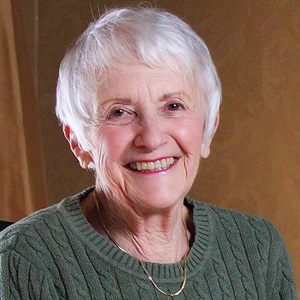More Coronavirus Resources:
Wednesday, February 26, 2014
The danger of developing skin cancer is something people have become more aware of over the years. Gone are the days of soaking in baby oil and iodine, worshipping the sun, and bronzing skin to get those glorified tan lines. As skin cancer awareness has steadily increased over the years, many people have replaced tanning lotion with sunscreen, while exercising caution when spending time in the sun.

While it is never too late to begin protecting your skin from damaging UV rays, experts say sunburns experienced early in life can cause skin cancer in later years. However, damage caused by the sun's rays is cumulative, spanning a person's entire lifetime in the sun. Knowing this, it may not be surprising to learn that cases of skin cancer among seniors are more prevalent than in the younger population.
Skin cancer among seniors is a serious matter. In fact, research indicates that over 50% of deaths associated with skin cancer occur in people over the age of 65. Perhaps this is because some older adults, unaware of the sun's continuous damaging rays, think the danger of skin cancer is not as high as they age. But it is critical that seniors protect their skin from the sun as aging skin loses its ability to protect itself. Additionally, current sun exposure further harms \"old\" sun damage, and inhibits the skin's ability to protect it from cancer. It also may become harder to detect clues of cancer on the skin as the skin matures with aging. Wrinkles and decreased elasticity due to aging change the overall appearance of skin. Age spots, dryness and other skin conditions seniors suffer make it harder to detect abnormal cancerous lesions.
Seniors who develop melanoma are not as likely to have a good prognosis as younger generations may be. Early detection of melanoma can literally mean the difference between life and death. Any signs of moles that are raised, change in shape, have jagged edges, discolorations, or signs of bleeding should be viewed by a doctor immediately. Other skin abnormalities should be checked out with a doctor, as well.
While not all skin cancer lesions are malignant, it is important as a person ages to be proactive in detecting skin cancer. Regular self-examinations of moles and other skin spots are crucial. Yearly appointments with a healthcare professional to examine all moles on the body are essential.
References
WebMD (2012). Skin conditions and the elderly. Retrieved on April 6, 2012 webmd.com/skin-problems-and-treatments/guide/elderly-skin-conditions.
Lebwohl, Mark. MD (2010). Skin cancer treatment among elderly requires additional caution. Retrieved on April 6, 2012 from skin-cancer doctors.com/2010/
11/09/skin-cancer-treatment-elderly/.
Evans, Susan. MD. Skin cancer on the rise among seniors. Retrieved on April 6, 2012 from doctoroz.com/blog/susan-evans-md/skin-cancer-rise-among-seniors.







